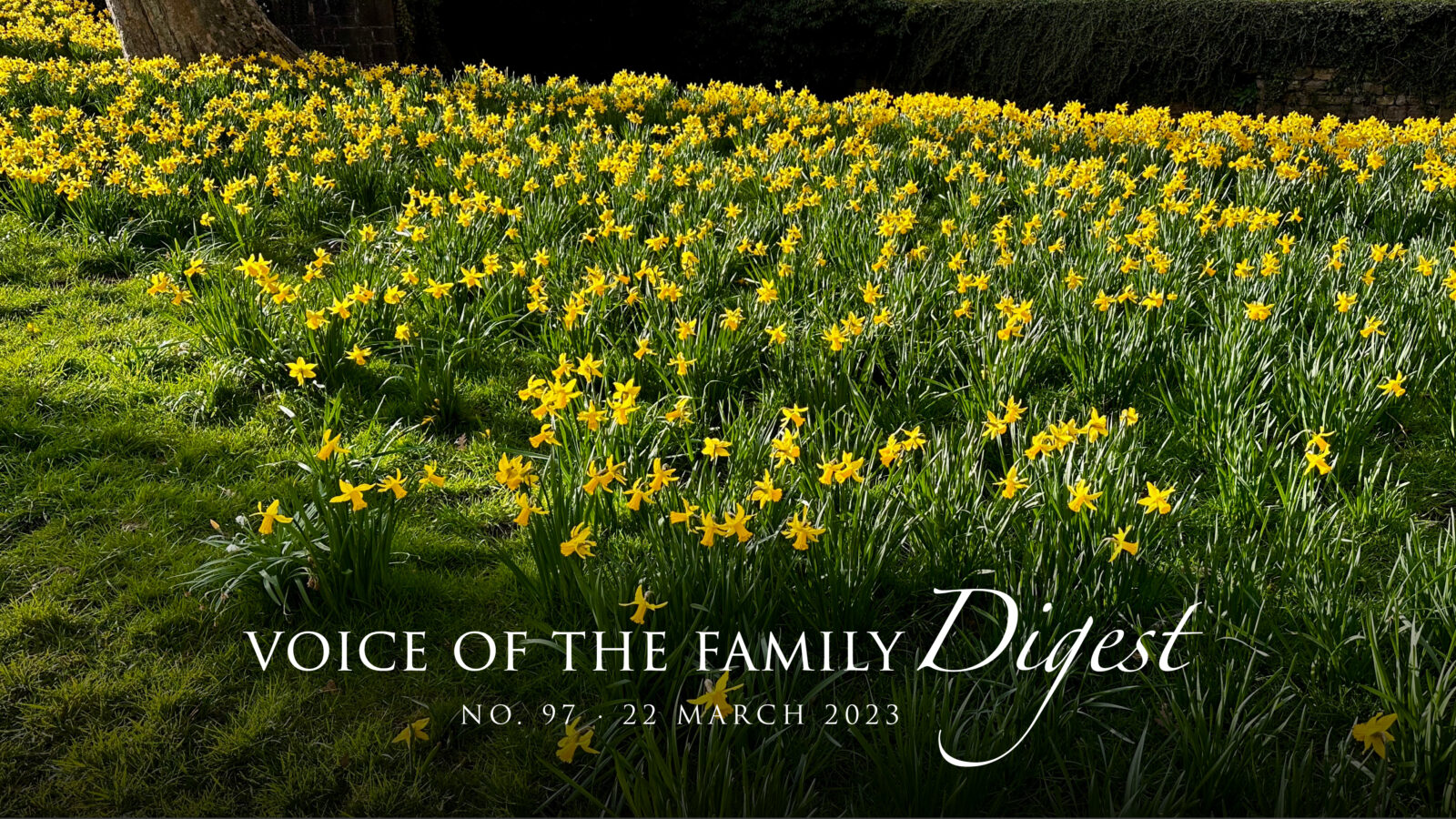The privileges of the month of March
By Roberto de Mattei | 22 March 2023

Of all the months of the year, the month of March has special privileges. According to the Bollandist Fathers, it was in March that the world was created, it was in March that the Annunciation of the Word took place and the Redeemer was conceived, and it was in March that the Passion and death of Our Lord took place. The liturgy celebrates the most important Marian feast, the Annunciation, on 25 March and dedicates 19 March to St Joseph, protector of the Church and of the Holy Family. St Benedict of Nursia and St Thomas Aquinas, two stars in the firmament of the Church, are also remembered by the Roman liturgy in March.
The French writer Ernest Hello (1828–1885), following the most ancient traditions, affirms that the first battle and victory of the universe took place on 25 March, the day God created the universe and Saint Michael vanquished Satan and the rebel angels and cast them into hell. Also following the most ancient tradition, Abel, the first martyr, was murdered on 25 March, and on 25 March Melchizedek offered bread and wine to the Most High, in that mysterious sacrifice which prefigured the Eucharist.
The name “March” comes from the Latin Martius, the god Mars, to whom this month was dedicated by the Romans. The calendar of ancient Rome began with the month of March, dedicated to Mars, the god of war and spring harvests. 1 March was therefore the equivalent of our New Year and February was the last month of the year. A reform of the Roman calendar was enacted by Julius Caesar and introduced in 46 BC. From then on, the calendar would be called Julian, in homage to its founder. The Gregorian calendar, introduced by Pope Gregory XIII on 4 October 1582, respected many regional traditions, dating back to the Middle Ages, according to which the year began in March; the different dating systems were called “styles”. Then, in 1748, Francis Stephen of Lorraine established that, from 1759, 1 January would be the first day of the year in Florence, as can be read on a plaque walled in the Loggia dei Lanzi.
Until the fall of the Most Serene Republic of Venice in 1797, the beginning of the year was set at 1 March, according to a custom called the [Venetian] “style” or more veneto . According to the Florentine and Pisan style, as well as in Vienna, England and Ireland, the year began on the day of the Incarnation, that is from the conception of Jesus, set nine months before His birth, and thus on 25 March.
The Bollandists also believe that the end of the world will occur in March. The world will be judged in the same month in which it was created; the centuries of the Catholic Church will end in the valley of Jehoshaphat, fulfilling a mysterious divine design, according to which nothing in the universe happens by chance.
These anniversaries, Hello comments, are not coincidences; they respond to each other, like an echo from one mountain to another:
“We follow the hours of the clock of time. The night that led the Hebrews into the desert was made of light and shadow. The gigantic plan that embraces creation, redemption, consummation, is by turns dark and by turns bright. The hand that guides humanity sometimes lowers, sometimes lifts the veil behind which lie the mysterious and solemn harmonies.”
Ernest Hello, Fisionomie di santi, Fogola, Torino 1977, p. 107.
